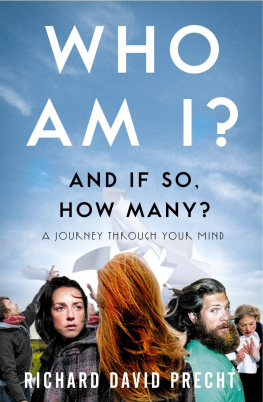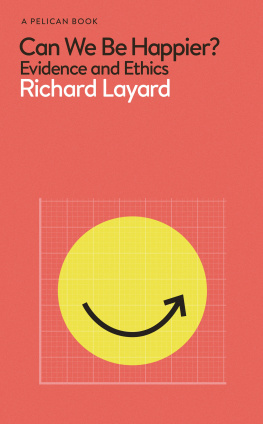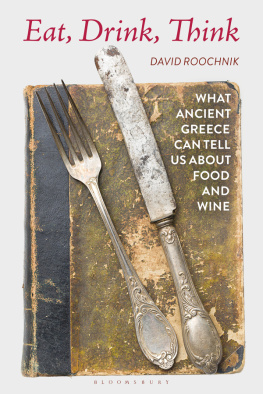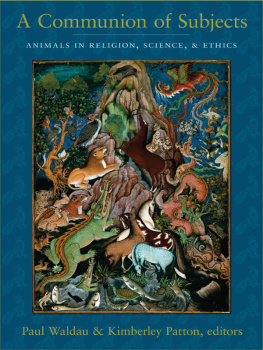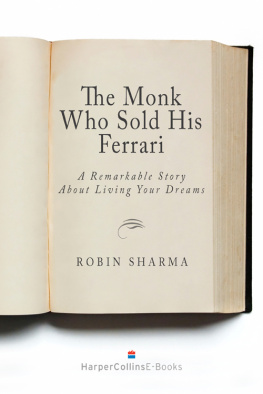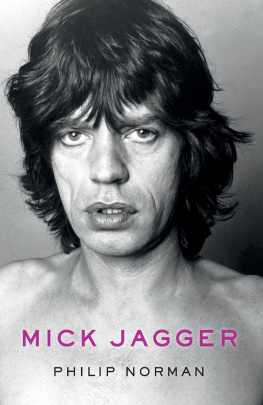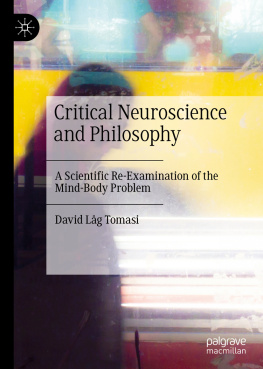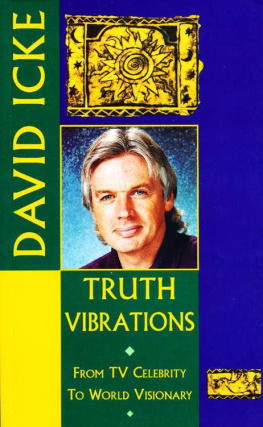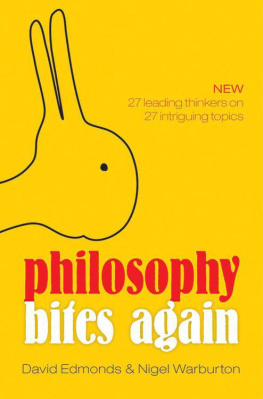When youve read this book, youve taken the first step on the way towards happiness This book is indispensable.
A sweeping guide for getting to the bottom of things for searching for answers and critically examining those answers. In short: narrated philosophy.
Prechts rhetorically fine train of thought ranges beyond a spirit of the time and traverses its own limits. He poses systematic questions pertaining to everyday life. He casts a net of philosophical insights, scientific discoveries, and political events that broadens the perspective of the total human phenomenon.
The Greek island of Naxos is the largest of the Aegean Cyclades islands. Mount Zas rises more than three thousand feet in the middle of the island. Goats and sheep graze on the fragrant fields; grapes and vegetables flourish. Back in the 1980s, Naxos still had a legendary beach at Agia Anna, with miles of sand dunes where a few tourists had put up bamboo huts and spent their time snoozing in the shade. One day in the summer of 1985, two young men who had just turned twenty were lying under a rock ledge. Jrgen, from Dsseldorf, was one; I was the other. We had just met at the beach a few days earlier, and we were discussing a book I had plucked from my fathers library to take along on vacation: a dog-eared paperback, its pages yellowed from the sun, with a Greek temple and two men in Greek clothing on the cover: The Four Socratic Dialogues of Plato.
The atmosphere in which we passionately exchanged our modest ideas left as deep an impression on me as the sun did on my skin. That evening, while our group enjoyed cheese, wine, and melon, Jrgen and I continued our discussion. We were especially taken with the apologia, the speech Plato tells us Socrates gave before being sentenced to death for corrupting youth.
It eased for a while, at least my fear of death, a subject I found deeply unsettling. Jrgen was not as convinced.
I cant remember what Jrgen looked like. I never ran into him again, and Im sure I wouldnt recognize him if I passed him on the street today. And Ive heard from a reliable source that Agia Anna beach, to which I have never returned, is now a resort town with hotels, beach umbrellas, and lounge chairs you have to pay to lie in. But entire passages from Socrates apologia have stuck in my mind and will surely follow me right to the old age home. It remains to be seen whether they will retain the power to soothe me.
I never lost my passionate interest in philosophy, which has lived on since my days in Agia Anna. When I came home from Naxos, I signed up for a stultifying community service job in lieu of joining the military. My job as a parish worker did not exactly spark bold ideas; once Id seen the Lutheran Church from the inside, I warmed up to Catholicism. But I did retain my interest in seeking the meaning of a life well lived, and in finding convincing answers to the great questions in life. I decided to study philosophy.
My course work in Cologne got off to an inauspicious start. I had pictured philosophers as fascinating people living lives as exhilarating and uncompromising as their ideas: people like Theodor W. Adorno, Ernst Bloch, or Jean-Paul Sartre. But my vision of bold ideas and a bold life evaporated the instant I caught sight of my new teachers: boring middle-aged gentlemen in pedestrian brown or navy suits. I thought of the writer Robert Musils surprise that the modern and progressive engineers in the Wilhelminian era who were conquering new worlds on land, in water, and in the skies still sported old-fashioned handlebar mustaches, vests, and pocket watches. It struck me that the philosophers in Cologne were similarly failing to apply their inner freedom of mind to their outer lives. Still, one of them ultimately taught me how to think by training me to probe for the why behind every question and not to settle for easy answers. He impressed upon me the need to keep my lines of thought and argumentation unbroken, and to be careful to build each individual step on the one before it.
My student days were wonderful. My memory has merged them into one long succession of stimulating readings, spontaneous cooking, leisurely talks over noodle dinners, cheap red wine, heated classroom debates, and endless rounds of coffee in the cafeteria, where wed put our philosophical education to the test, arguing about the limits of knowledge and what it means to lead a good life. We also analyzed soccer games and wondered why men and women had so much trouble getting along. The great part about philosophy is that there is never an end to it. It is also wonderfully interdisciplinary. The obvious career choice for me would have been to stay at the university. But the lives my professors were leading seemed drearily uninviting. I was also bothered by how ineffectual academic philosophy was. Essays and books were read with an eye to picking them apart. The symposia and conferences I attended as a doctoral student stripped away any illusions I might have had about the participants interest in fostering communication.
Still, the questions and the books stayed with me as time went on, and a year ago I realized that there are very few satisfying introductions to philosophy. Of course there are plenty of witty books full of quips and brainteasers, but they were not the ones I had in mind, nor were the handy guides to the lives and works of selected philosophers or introductions to their writings. What I couldnt seem to find was a systematic discussion of the major overarching questions. A good deal of what passes for an introduction to philosophy is merely a parade of currents of thought and isms. These kinds of books are typically too historically oriented for my liking, or they are unwieldy and insipid.
The reason for this unappetizing state of the literature is obvious : universities rarely foster innovation. Even today, academia privileges the regurgitation of secondary texts over intellectual creativity. What I find especially problematic is the designation of philosophy as a field separate from other disciplines. While my professors were explaining human consciousness on the basis of Kants and Hegels theories, their colleagues in the medical school just down the street were conducting highly enlightening experiments with brain-damaged patients. But just down the street is quite a long distance at a university. Professors in different disciplines might as well live on different planets.
How do philosophical, psychological, and neurobiological findings about the nature of consciousness intertwine? Do they clash or complement one another? Is there a self? What are feelings? What is memory? The most intriguing questions did not even make it into the philosophical curriculum when I was a student, and, as far as I can tell, far too little has changed today.
Philosophy is not the study of history. Of course we need to preserve our heritage and to keep inspecting and refurbishing the historic structures of our intellectual life, but the academy spends far too much time and effort looking backward, especially when you consider that philosophy is not nearly as etched in the stone of its past as many believe. The history of philosophy is to a great extent a history of intellectual climates and trends, of knowledge that was forgotten or suppressed, and of numerous apparently new beginnings that seem so new only because much of what had been thought before was neglected. Ideas rarely appear out of thin air. Most philosophers have constructed their ideas on the ruins of their forebears, but not, as they have often thought, on the ruins of the history of philosophy as a whole. Many clever insights and approaches fall by the wayside, while quirky and improbable ideas continue to be reconsidered and revived. And many philosophers themselves waver between new insights and old prejudices. Back in the eighteenth century, David Hume was in many respects an exceptionally modern thinker, but his attitude toward certain nations, especially in Africa, was chauvinistic and racist. In the century that followed, Friedrich Nietzsche became one of the most incisive critics in the field of philosophy, but his own ideals for man were kitschy, presumptuous, and downright preposterous.

